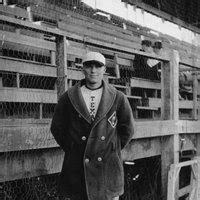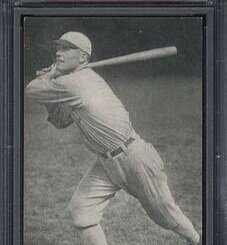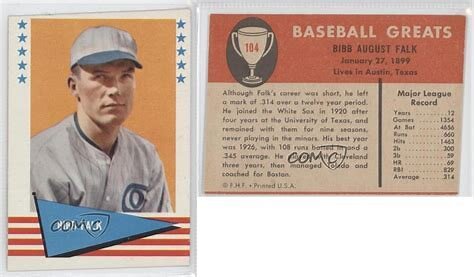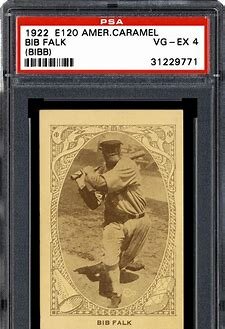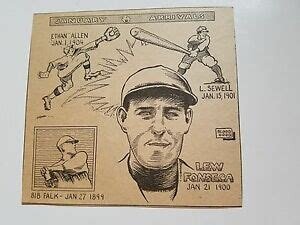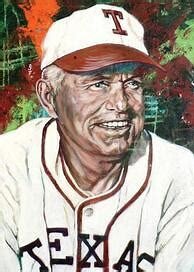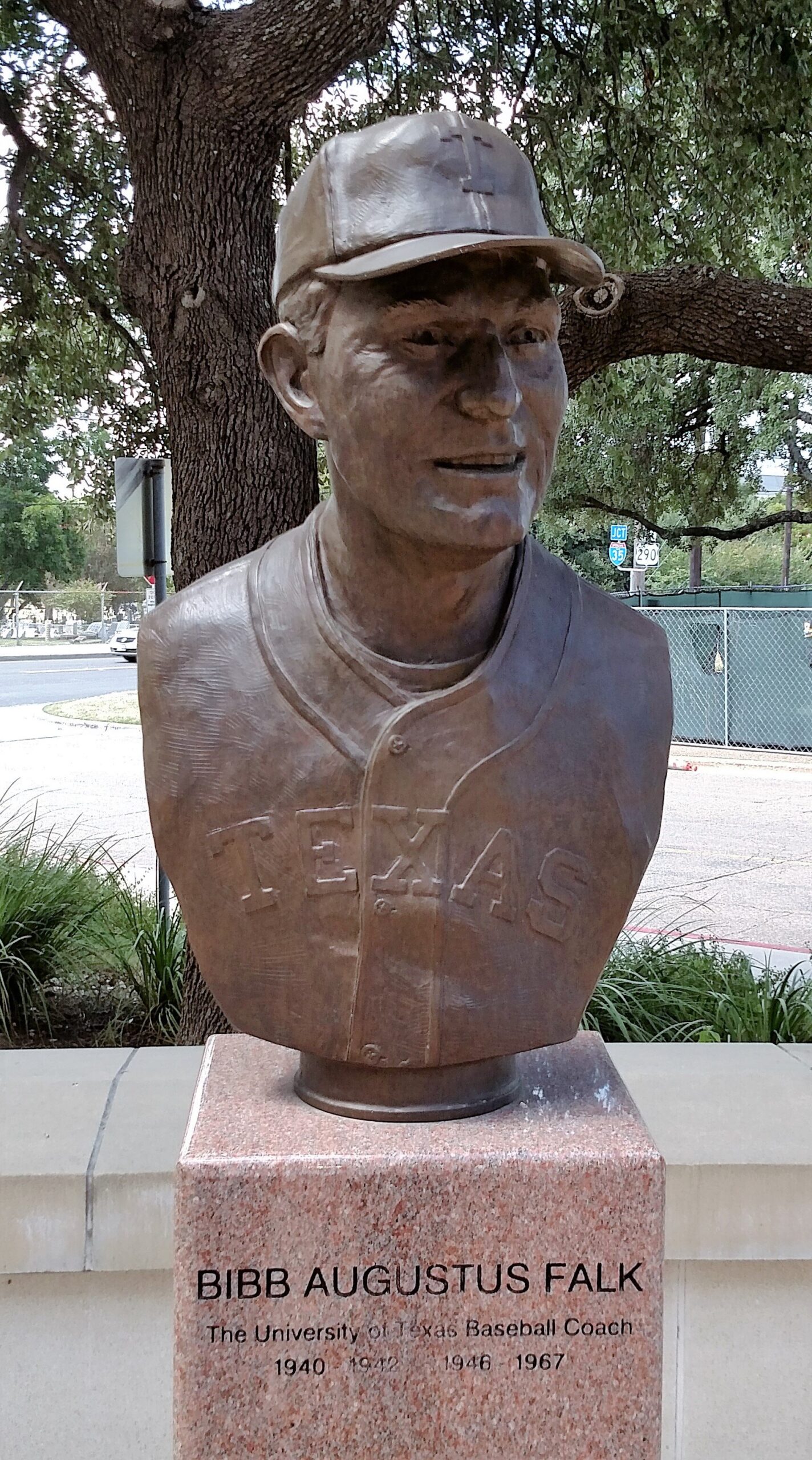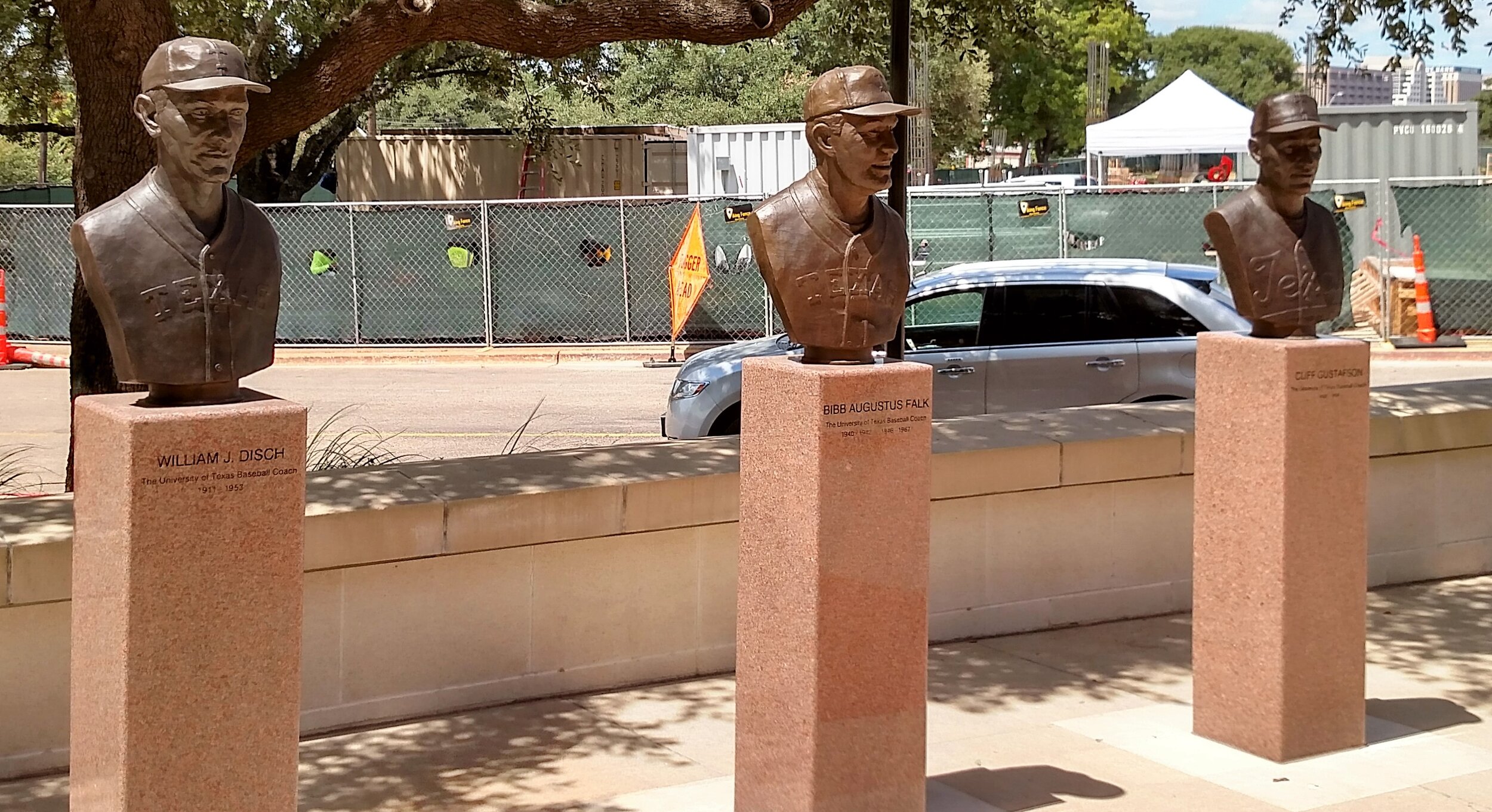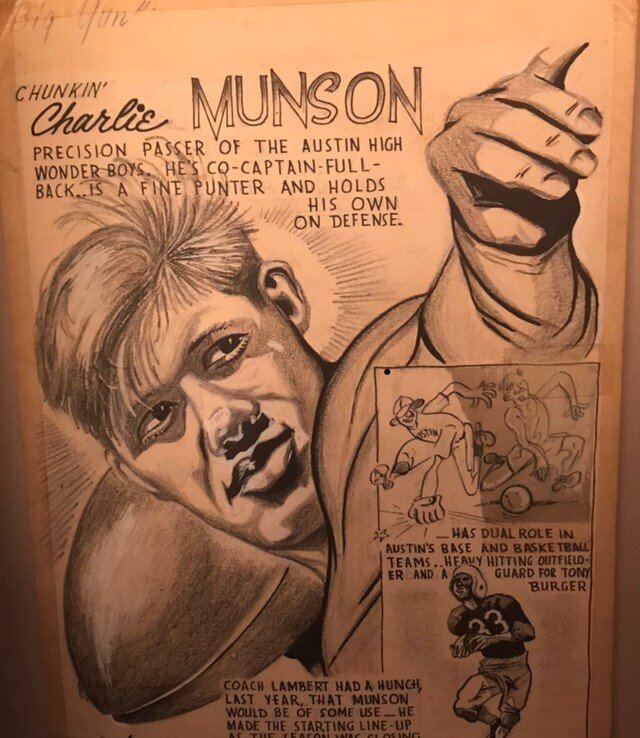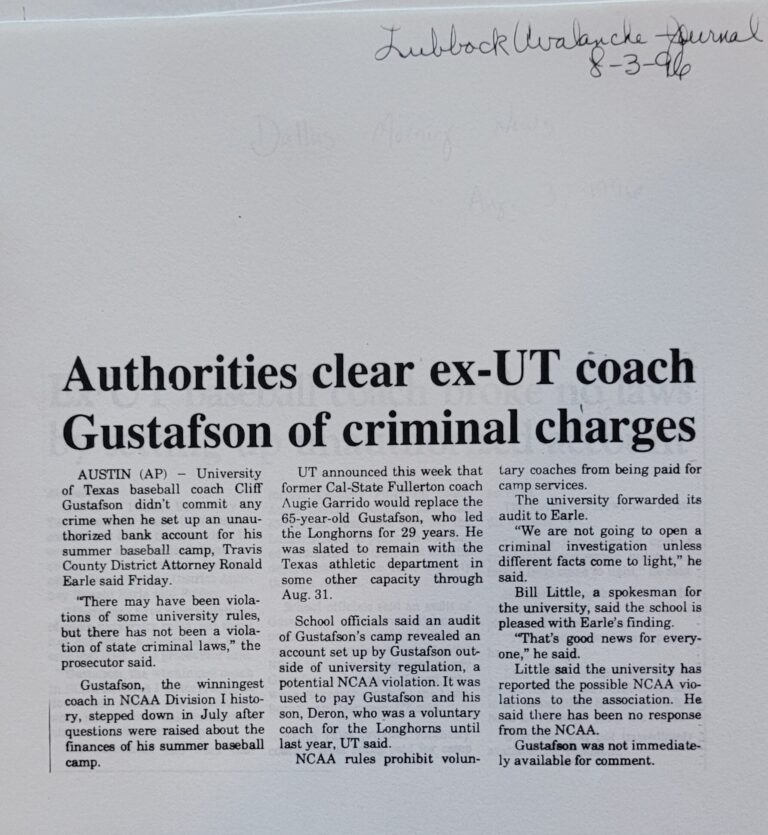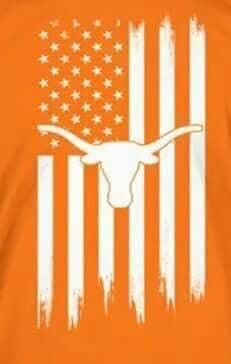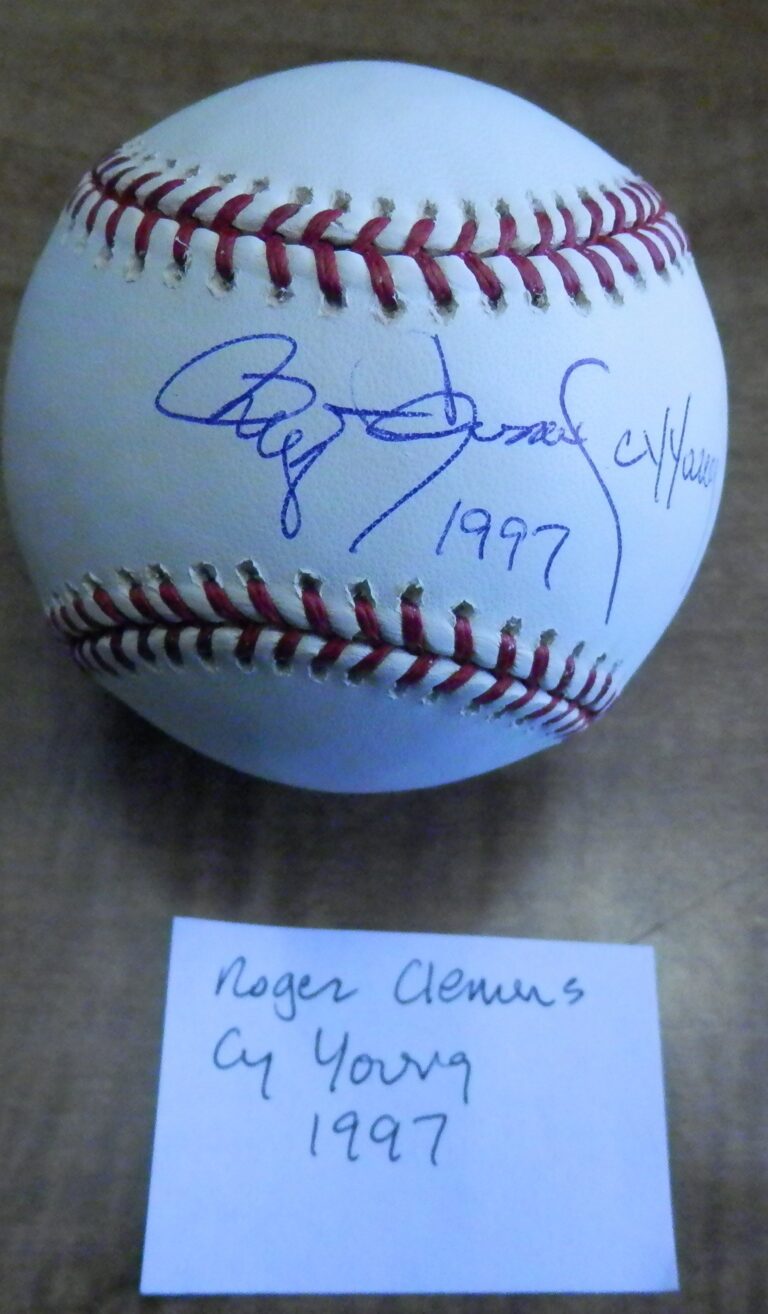Coach Bibb Falk Bio
On June 8th, 1989, Coach Falk passed away at the age of 90, but not before leaving a legacy as a Longhorn player, professional athlete, and coach.
Falk’s enduring self-confidence drove him to success in baseball, football, and coaching.
AS A LONGHORN BASEBALL PLAYER:
The Aggies Called Him Big Noise And Other Teams Called Him Jockey Because Of His Merciless Riding Of Opponents From The Bench. AS A PROFESSIONAL BASEBALL PLAYER:
Bibb Was A Hot Commodity For Professional Baseball. Several Teams Wanted Him. In One Longhorn Game Against The Saint Louis Browns Bibb Falk Had A Home Run, A Triple, And A Double In Four Trips To The Plate. St Louis Rushed out Out Of The Stands And Onto The Outfield To Try And Sign Him To A Contract. However, He Had Already Committed To The White Sox’s Organization.
As the Longhorn coach, Falk won town national championships, 15 SWC Championships, and 4 Co-Championships. 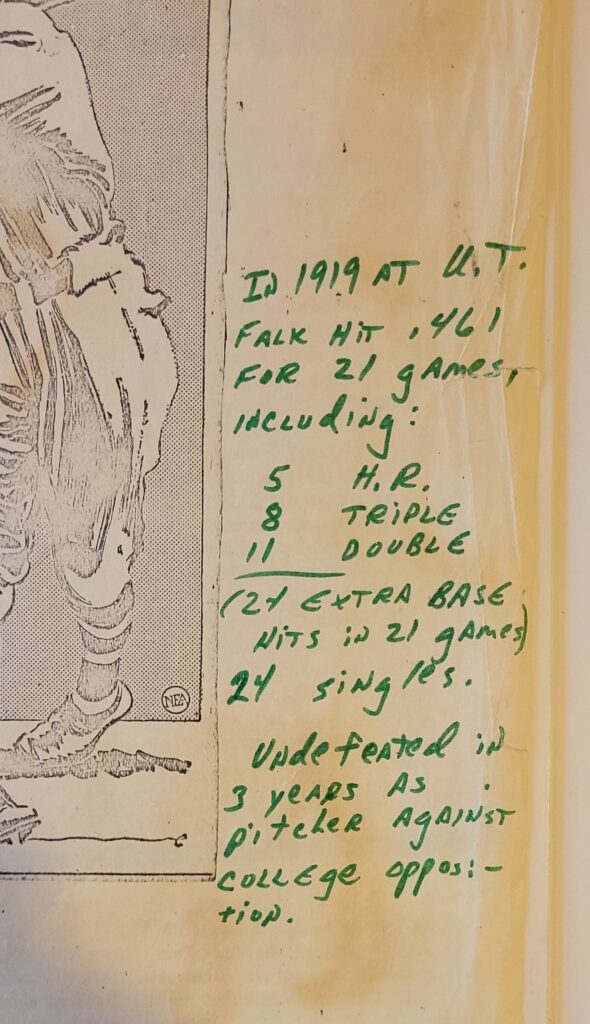
In 1915, Billy Disch offered Bibb Falk a scholarship to Texas. Bibb says he would never have attended college if Billy had not intervened. 1916 was Bibb Falk’s first year as a Longhorn. It was also the first year for Bevo, the mascot. As a pitcher, he was undefeated during his years at Texas. When he was not pitching, he played first base, but his primary strength in baseball was hitting.
As a Longhorn, he excelled at the plate, hitting .369, .462, and .400 in three years as a Horn. According to some authorities, Bibb was one of the hardest hitters ever to play college ball. When Bibb was at bat, opposing teams moved back on the field of play. One newspaper said with a sense of humor that “last year was a down year for Bibb.” “He did not bat as high as .500.”
In 1920 Bibb had one year of football eligibility at Texas remaining but no eligibility in baseball. While still in school in Texas, the Chicago White Sox signed him to a contract. One of the conditions of the contract stated he could play football in the fall season in Texas. He agreed but recanted when his Horn football team needed his services.
During the Fall football season, the Texas Longhorns team was playing very poorly against Baylor, so he suited up. The team beat Baylor 29 to 13, and with Bibb starting the next five games, the Horns won 4. Even though he only played part of the football season, he was named to the All-Southwest Conference team.
One of the most lasting Bibb Falk college baseball tales occurred against Texas A&M. The Aggie crowd harassed him all during the game. He chose to respond, so Bibb announced to the Aggie fans and players that he was going to hit a triple. In those days, there was no fence to determine a home run, so home runs were determined by running the bases, not by hitting a ball over a fence. Bibb hit a ball so far over the Aggie outfielders that they did not chase it, conceding a home run to Bibb. However, Falk chose to stop at 3rd base instead of running for home. Standing on 3rd with his arms folded, he said to the Aggie faithful, “What’s the matter with you mugs? Haven’t you ever seen a big leaguer hit?” The Aggies, from then on, referred to Falk as BIG NOISE. Some other teams and fans also gave him the moniker “jockey” because he rode the opposing teams from the bench.
He received these names for justifiable reasons. Even his teammates and coach had to listen to him share his self-confidence. After a team victory, Coach Billy Disch said: “The Good Lord was on our side today.” Bibb Falk responded, “Yeah, but old Falk took over in the 9th.”
As a Professional baseball player
It was an illegal gambling infraction against the Chicago White Socks Shoeless Joe Jackson that started Bibbs’s career in professional baseball. With Shoeless Joe out, Bibb started as a rookie and honed his baseball skills. By July 1924, he was leading Babe Ruth in the American League in hitting with a .373 average. Bibb faded near the end of the season but still finished a respectful third place with a batting average of .352.
The next year, Bibb thought he deserved a raise, but the owner curtly rejected his request. He sent Bibb an impersonal letter denying the request for a raise with the comment, “He (the owner) never heard of a player giving a baseball owner a refund if he had a bad year.”
Babe Ruth and Bibb Falk played the same position on the field for opposing teams. During those years, it was common for the outfielders to leave their gloves in a safe place near the playing field when they came to bat. Bibb said he once got Babe’s glove and stuffed the fingers with a dead bird. Falk says I could see him cussing as I entered the dugout.
1926 was Bibbs’s best year as a professional, batting .345 with only three fielding errors in 155 games. His last professional match was on September 23rd, 1931, when he was 32 years old. For four more years, he stayed in professional baseball, performing managerial-level duties, but in 1935, he returned to Austin.
From 1940 – to 1952, Bibb Falk was the “field” Coach, and Billy Disch retained his title as head coach
Most of Longhorn history of baseball under Bibb Falk is covered at https://www.texaslsn.org/bibb-falk
In 1940, Bibb returned to the University of Texas as an assistant baseball coach and immediately became the de facto Head Coach. Falk was hired at a salary of $333.33 a month.
While helping a student push his car out of the mud, Billy Disch strained his heart. As a result, he had to contend with a severe heart ailment for the rest of his life.
From 1940 through Billy’s death in 1952, Billy Disch retained his title as head coach while Bibb Falk’s title was “Field coach.”
In 1942, at the age of 42, Falk turned over the helm of the Texas Longhorn baseball team to Blair ccherry and enlisted in the Army Air Force as a private. He was stationed at Randolph Field in San Antonio, TX, and was the head coach for their baseball team. In 1943 the Randolph baseball team record was 58-19, and the team won the League championship. Bibb was also the trainer for the Randolph field football Ramblers, who, in 1944, played the Texas Longhorns in the Cotton Bowl.
After the war effort in 1946, Bibb returned to Texas, and his first year led the Horns to a Southwest Conference championship. The team was undefeated in conference play with a record of 14 -0 and 19-1 overall.
BIBB FALK BROUGHT A COLORFUL COACHING STYLE TO THE UNIVERSITY.
“You Cannot Make Chicken Salad Out Of A Chicken Shit” Sums Up His Coaching PHILOSOPHY.
Billy Disch and Bibb Falk’s coaching styles were diametrically opposite. Billy was refined, while Bibb was brash. Billy did not curse, while Bibb knew every curse word in the American Lexicon. Bibb was someone who could cuss all day and not offend anyone. In the book Texas Longhorn Baseball by Wilbur Evans and Bill Little, the authors say, “Part of the Falk legend is of a crusty old fellow who could curse for an hour without repeating himself.”
In Joe Franta’s book The Forty Acres Follies, Coach Falk is described as someone who “put down his players” in a fashion similar to Abe Lemons. Falk had a wit that cut to the marrow. All-American Murray Wall, who played four years for the Boston Red Sox organization, said that Coach Falk scared him more than any coach he played for at any baseball level. Falk took playing baseball seriously, and he expected the same serious demeanor from athletes.
Bob Rochs was the team manager during the early transition between Disch and Falk and recalls that the change in coaching style was palpable with Disch’s “strait lace” and Falk’s bombastic demeanor. Bibb spoke his mind, and sometimes that offended people. One sportswriter called him the Captain Bligh of college baseball.
Travis Eckardt, who played for Bibb in the early 50s, said in a 1999 interview with the Austin American statesman that Bibb coached only one way, and it was his way. “If your personality suited his way of coaching, he could make you into a great ballplayer.” “If your personalities did not mash, he could destroy you. I thought it best to be easy and just roll with the punches. “
Jimmy Raup was a relief pitcher for the Longhorns in the early 1960s. He stated that Bibb made you furious when you played for him, but that was his method of motivation.
More than bombastic, authoritarian, intense, demanding, and forthright, Bibb Falk was a perfectionist. He believed that a baseball player should never stop learning. He told his players to seek advice from veterans and work to improve. Those who did not follow his advice were ridiculed.
Bibb also had a reputation for never praising any of his players. In 1953, when an all-American center fielder hit a home run over the center-field wall, he was greeted in the dugout by Bibb, who told him you’re going to learn to pull the ball one of these days. When one of the pitchers was put in a game against Oklahoma with the bases loaded, and nobody out successfully retired the batters in order, the player was elated and proud of his accomplishment. But Bibb looked straight at him and said: “How long do you expect to get away with that shit .”
In the 1965 College World Series appearance, Texas lost the first two games and exited the tournament. Coach Falk was not happy and reminded his players why he did not select Captains. Falk said, “ I never had any stars…that’s why I never had a team captain.”
Bibb recruited his own players. He didn’t trust anyone else’s recommendations. Furthermore, Coach Falk never gave any player a full scholarship and never insisted on a signed binding letter of intent from a recruit. He felt that college allowed boys to refine their skills and mature, which increased their chances of jumping right into the majors. However, he also believed a boy should be able to change his mind about playing college ball. Falk reasoned that if a boy wanted to skip college and go right to the minor leagues, he should be allowed.

